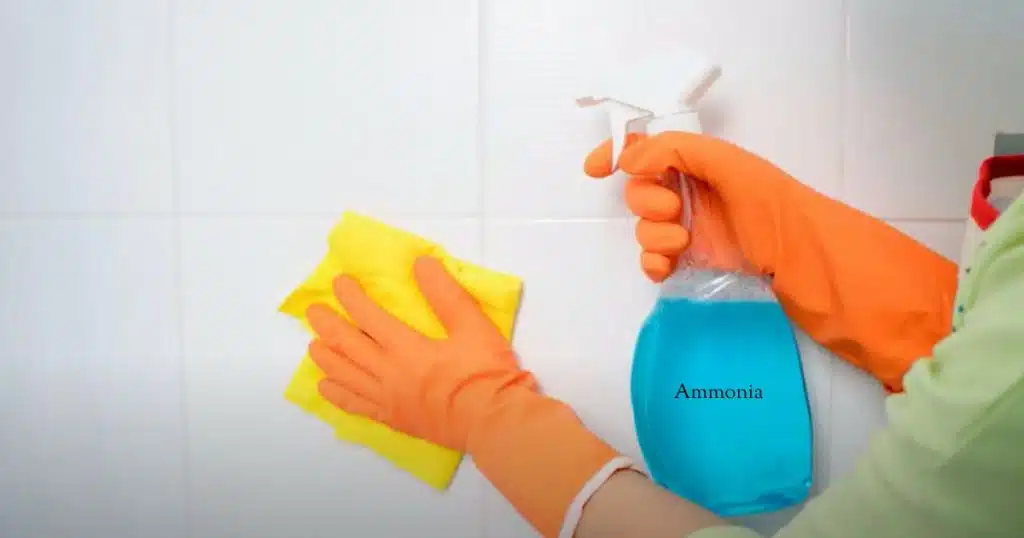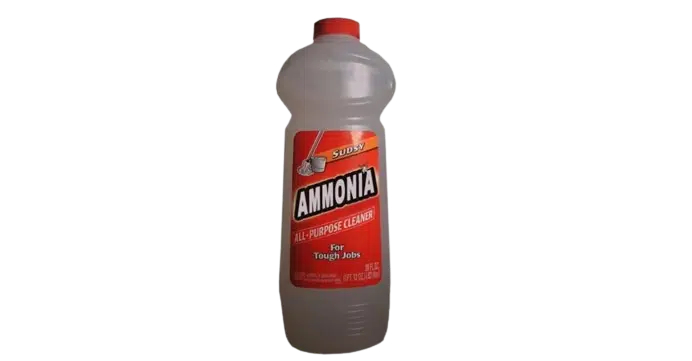As an Amazon Associate I earn from qualifying purchases.
Ensuring our environments are clean is vital for our health, whether we’re at home, at work, or in public areas.Proper cleaning is key to stopping the spread of germs. This article examines both ammonia-based and non-ammonia cleaners, detailing their benefits and drawbacks, performance, and their effects on health and the environment. When evaluating whether is ammonia good for cleaning floors, it’s crucial to consider both its effectiveness and potential downsides.
Ammonia-based cleaners are well-known for their strong degreasing power and effectiveness in removing tough stains and grime.However, they can release intense fumes that may cause respiratory irritation and contribute to indoor air pollution.By comparing ammonia and non-ammonia cleaners, you can make a well-informed choice that meets your cleaning needs while considering health and environmental impacts.

Key Takeaways
- Ammonia is in many cleaning products, like floor cleaners.
- It’s great at removing grease and dirt, so it’s common for floors.
- However, it can pose harm and risks if used incorrectly or excessively.
- Non-ammonia cleaners are safer. They’re also better for the earth, using natural ingredients.
- When choosing a cleaner, think about cost, how well it cleans, and its effects on the environment.
Understanding the Role of Ammonia in Cleaning Products
Ammonia-based cleaners are often picked for many clean-up jobs. They mix ammonia, a clear gas with a strong smell, with water and other stuff. Ammonia is the main cleaner here. It’s great at getting rid of grease, stains, and dirt, which is why it works well for lots of cleaning needs.
Composition and Properties of Ammonia-based Cleaners
Ammonia comes in many household cleaners, usually in its liquid form. You’ll find it in window sprays, floor shines, and even in drain openers. With its high pH level of 11, ammonia is a powerful cleaner. It easily tackles tough dirt and oils. But, be careful. Mixing it with bleach forms a dangerous gas. This gas can harm your breathing and make your chest hurt if you breathe it in.

Advantages of Using Ammonia for Cleaning Floors
Ammonia-based cleaners have their perks for floors. They’re good at breaking down dirt and oils, and they dry fast without a leftover film. They’re also usually cheaper than some other cleaning choices. Remember, though, strong ammonia is often sold a bit watered down. You should usually mix it more before using it. Strong ammonia can bother your nose, throat, and eyes, causing coughing, breathing issues, and eye discomfort. People with allergies and asthma might feel its effects more. It can even burn skin, so wearing gloves is smart when you’re working with it.
On cleaner labels, ammonia might be called ammonium hydroxide. It’s key to know the risks and be careful with ammonia products. Always follow the instructions and be safe.
Even with its risks, ammonia is a good option for floor cleaning and more surfaces. Knowing the facts about ammonia-based cleaners helps consumers choose wisely. They should also learn how to use these products safely and effectively.
Exploring Non-Ammonia Floor Cleaning Alternatives
Many people worry about the harm of ammonia in cleaning. So, they’re looking for safer alternatives. These new cleaners are friendlier to the environment.
Benefits of Non-Ammonia Floor Cleaners
Choices in non-ammonia floor cleaners are growing. There are natural and plant-based products. They use things like citric acid and vinegar instead of harsh chemicals. This means they can clean well without ammonia.
These alternatives are also good for the planet. They’re made without harmful chemicals. So, they’re safer for everyone and everything. This includes your family and pets.
Another good thing is that they don’t smell as strong. Some are completely odorless, which is ideal for people who dislike strong scents.This is great for people who don’t like strong scents. It offers a more natural way to clean.
There are also steam cleaning options. Steam can kill germs without any chemicals. It’s another eco-friendly way to clean your floors.
Choosing non-ammonia cleaners is a smart way to clean. It matches your values and keeps your home safe. It’s beneficial for both the environment and your health.
Is ammonia good for cleaning floors
Ammonia-based cleaners work well on floors, especially for tough dirt and grease. They clean so well because of what they’re made of.This includes one part nitrogen to three parts hydrogen.
Yet, using them on all surfaces isn’t always safe. They might harm things if not used the right way.
Non-ammonia cleaners are becoming more popular. They are a better choice for places where there are pets or kids. This is because they are usually safer and possibly less harmful to floors.How you choose to clean floors often comes down to what you like. It also varies based on what you are cleaning and the type of flooring.
Ammonia Cleaners | Non-Ammonia Cleaners |
It is extremely effective at eliminating tough stains and accumulated grime. | Although it may require extra effort, it can produce satisfactory cleaning results. |
Can be harsh and harm sealants with lots of use | Generally better for homes with pets and kids |
Great for very dirty floors and getting concrete stains out | Offer choices that are friendly to the environment and possibly less harmful |
The choice between ammonia and non-ammonia cleaners depends on several things. This includes what you need to clean, the type of flooring, and what you prefer. Having a grasp of both the strengths and weaknesses of each option can steer you towards a judicious decision.
Environmental Impact: Comparing Ammonia and Non-Ammonia Cleaners
Cleaning floors with ammonia-based or non-ammonia cleaners can change the earth. Ammonia helps clean. But, it harms water when not used properly. Non-ammonia cleaners are better for the environment. They might not hurt our planet as much.
Analyzing the Environmental Footprint of Ammonia-based Cleaners
Ammonia-based cleaners pollute water and hurt sea life. They’re good at cleaning but bad for the earth. Non-ammonia cleaners are safer. They use materials that break down naturally. This means less pollution and harm to nature’s balance.
Non-ammonia cleaners are better for our future. They use natural ingredients and oils instead of harsh chemicals. This is advantageous not only for the planet but also for our safety and health. Normal cleaning products make some people sick. They cause allergies and affect breathing. Green products are safe and easy on the earth. Choosing non-ammonia cleaners helps keep our home and planet healthy. And they clean well, too.
At first, eco-friendly products might cost more. But they save money later on healthcare. They also make the air inside our homes better. Non-ammonia cleaners are part of a healthy, clean future. They are good for us and the planet.
Frequently Asked Questions
Ammonia is generally safe for use on most types of hard floors, including tile, linoleum, and ceramic. However, it can damage waxed or polished surfaces and is not recommended for use on unsealed wood or laminate floors.
Ammonia can leave a temporary strong odor, but it usually dissipates quickly with adequate ventilation and rinsing.
Yes, ammonia is effective for cutting through grease and grime, making it useful for removing tough stains on hard floors. However, it’s important to use it properly diluted and rinse thoroughly afterward.
Yes, ammonia can be toxic if ingested or inhaled in large quantities. After cleaning with ammonia, ensure proper ventilation and keep pets and children away from cleaned areas until floors are completely dry.
Make sure to wear gloves and operate in a well-ventilated area:
1. Avoid using ammonia on waxed or polished floors.
2. Test in a small area first, especially on sensitive flooring materials.
3. Rinse floors thoroughly with clean water after cleaning to remove any residue.
4. Store ammonia safely away from children and pets.
Conclusion: Is Ammonia the Right Choice for Your Floors?
While ammonia is effective and economical for floor cleaning, its use requires careful handling and consideration of safety measures. By comprehending its advantages and alternatives, homeowners can make informed decisions tailored to their preferences and requirements for a clean and safe home environment.
Amazon and the Amazon logo are trademarks of Amazon.com, Inc, or its affiliates.
Leave a Reply